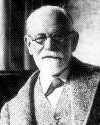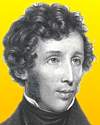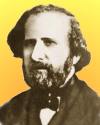 | TODAY IN SCIENCE HISTORY NEWSLETTER - 23 SEPTEMBER |
| Feature for Today |
| |
| Book of the Day | |
| |
| Quotations for Today | |
| | "Over the last century, physicists have used light quanta electrons, alpha particles, X-rays, gamma-rays, protons, neutrons and exotic sub-nuclear particles for this purpose (scattering experiments). Much important information about the target atoms or nuclei or their assemblage has been obtained in this way. In witness of this importance one can point to the unusual concentration of scattering enthusiasts among earlier Nobel Laureate physicists. One could say that physicists just love to perform or interpret scattering experiments." |
 | "No, our science is no illusion. But an illusion it would be to suppose that what science cannot give us we can get elsewhere." |
 | "Organic chemistry nowadays almost drives one mad. To me it appears like a primeval tropical forest full of the most remarkable things, a dreadful, endless jungle into which one dare not enter, for there seems no way out." |
| QUIZ | |
| Before you look at today's web page, see if you can answer some of these questions about the events that happened on this day. Some of the names are very familiar. Others will likely stump you. Tickle your curiosity with these questions, then check your answers on today's web page. | |
| Births | |
| |  Robert Bosch, born 23 Sep 1861, wa a German engineer and industrialist who invented electrical equipment for automobiles. Robert Bosch, born 23 Sep 1861, wa a German engineer and industrialist who invented electrical equipment for automobiles.  Can you name two of his well-known inventions? Can you name two of his well-known inventions? |
 |  A French physicist, born 23 Sep 1819 was the first to measure the speed of light successfully without using astronomical calculations (1849). He sent a narrow beam of light between rotating gear teeth to a mirror 8 km/5 mi away. He observed whether on its return the beam was then blocked by a tooth. From the rotational speed of the wheel, and the mirror's distance, he directly measured the speed of light. A French physicist, born 23 Sep 1819 was the first to measure the speed of light successfully without using astronomical calculations (1849). He sent a narrow beam of light between rotating gear teeth to a mirror 8 km/5 mi away. He observed whether on its return the beam was then blocked by a tooth. From the rotational speed of the wheel, and the mirror's distance, he directly measured the speed of light. Can you name this scientist? Can you name this scientist? |
| Deaths | |
 |  The Austrian father of psychoanalysis, (1856-1939) emphasized the role of unconscious and nonrational functioning, going against much of contemporary thought by suggesting that dreams and "mistakes" may also have meaning. He battled cancer of the jaw from 1923 until his death in 1939 in London - after 16 operations. The Austrian father of psychoanalysis, (1856-1939) emphasized the role of unconscious and nonrational functioning, going against much of contemporary thought by suggesting that dreams and "mistakes" may also have meaning. He battled cancer of the jaw from 1923 until his death in 1939 in London - after 16 operations.  Can you name this man? Can you name this man? |
| Events | |
 |  On 23 Sep of a certain year, the German astronomer Johan G. Galle discovered Neptune after only an hour of searching, within one degree of the position that had been computed by Urbain-Jean-Joseph Le Verrier. On 23 Sep of a certain year, the German astronomer Johan G. Galle discovered Neptune after only an hour of searching, within one degree of the position that had been computed by Urbain-Jean-Joseph Le Verrier.  In what decade did this occur? In what decade did this occur? |
 On 23 Sep 1973, the world's first Ceefax teletext service began on television. On 23 Sep 1973, the world's first Ceefax teletext service began on television.  Which TV company first adopted Ceefax? Which TV company first adopted Ceefax? | |
| Answers |
When you have your answers ready to all the questions above, you'll find all the information to check them, and more, on the September 23 web page of Today in Science History. Or, try this link first for just the brief answers. Fast answers for the previous newsletter for September 22: At the Royal Institution; "same place" because isotopes are capable of occupying the same place on the Periodic Table; the decade containing the year 1851; Rediffusion. |
| Feedback |
 If you enjoy this newsletter, the website, or wish to offer encouragement or ideas, please send feedback by using your mail reader Reply button. If you enjoy this newsletter, the website, or wish to offer encouragement or ideas, please send feedback by using your mail reader Reply button. |
--
If you do not want to receive any more newsletters, this link
To update your preferences and to unsubscribe visit this link
If you do not want to receive any more newsletters, this link
To update your preferences and to unsubscribe visit this link
! !



Δεν υπάρχουν σχόλια:
Δημοσίευση σχολίου